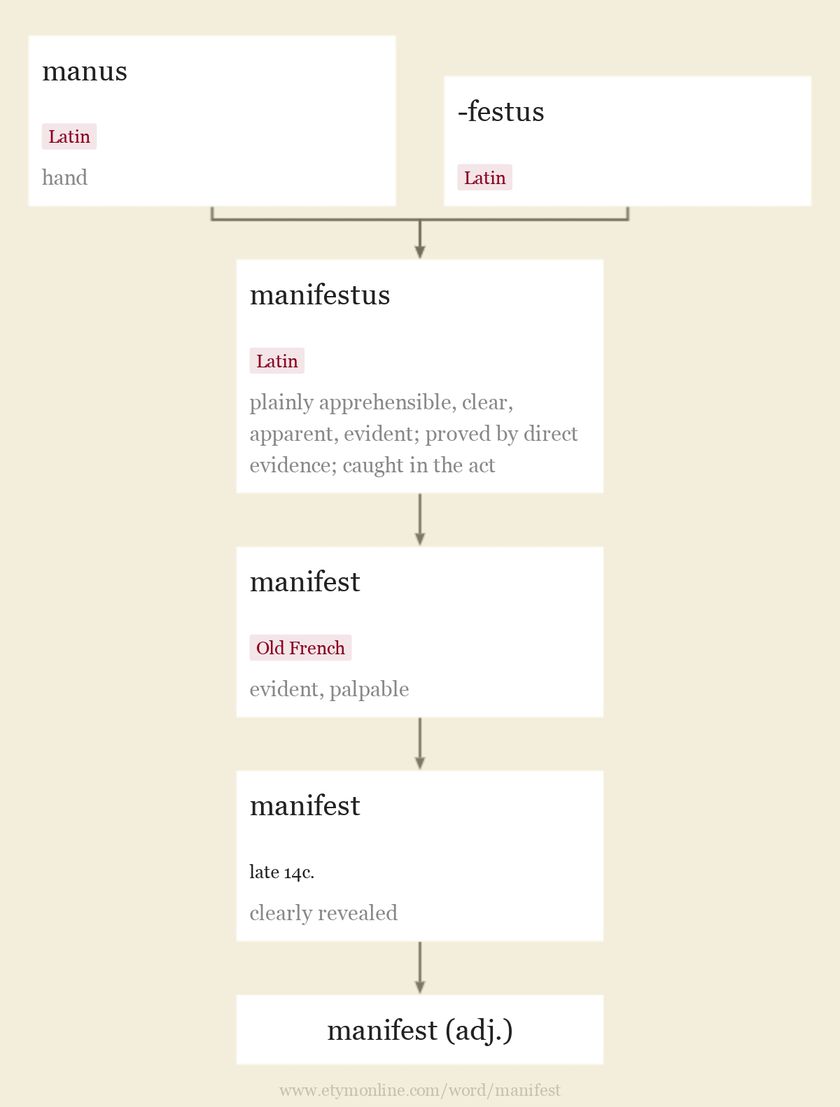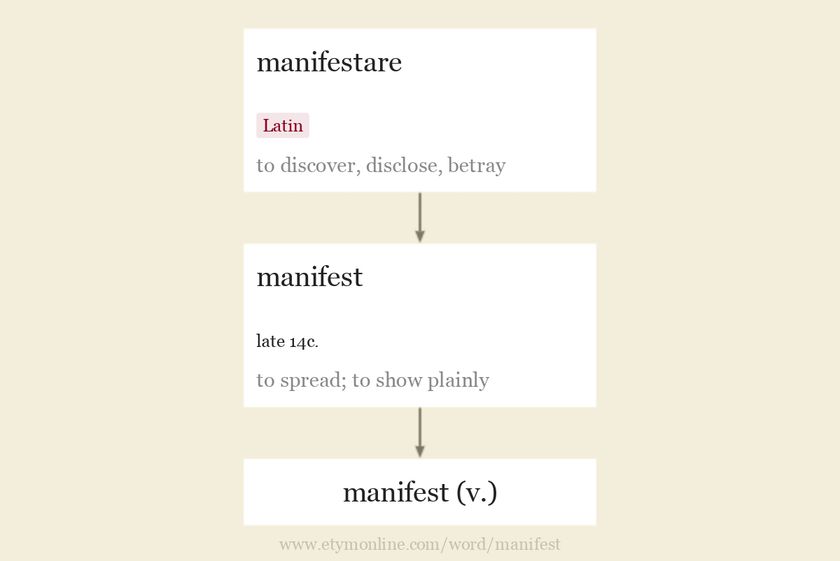manifest (adj.)
14世纪末,“清晰地展现在眼前或理解中,对视觉或理解开放”,源自12世纪的 manifest “明显的,可感知的”,或直接源自拉丁语 manifestus “明显可理解的,清晰的,显而易见的”; 对于犯罪,“通过直接证据证明”; 对于犯罪者,“被当场抓住”,可能源自 manus “手”(源自 PIE 根 *man-(2)“手”)+ -festus,这显然与 infest 的第二个元素相同。
德·凡写道,“如果 manifestus 可以解释为‘被手抓住’,那么这些意义似乎指向 -festus 的‘抓住’或‘攻击’。”但他认为,没有提出的其他联系令人信服,并得出结论,关于 infestus 和 manifestus,“也许这两个必须分开。”如果不是这样,意义的发展可能是从“被手抓住”到“在手中,可感知的”。
Manifest destiny,“明显注定要发生的事情; 可以被肯定地预见到的未来状态、条件或事件,或被视为不可避免的”,从墨西哥战争开始在美国政治中广泛使用,“那些相信美国注定在未来占领整个大陆的人”[世纪词典]。
Other nations have tried to check ... the fulfillment of our manifest destiny to overspread the Continent allotted by Providence for the free development of our yearly multiplying millions. [John O'Sullivan (1813-1895), "U.S. Magazine & Democratic Review," July 1845]
其他国家试图阻止……我们明显命中注定要遍布由上帝分配给我们不断增长的数百万人口自由发展的大陆的实现。[约翰·奥沙利文(1813-1895),《美国杂志与民主评论》,1845年7月]
这个短语显然是奥沙利文的创造; 这个观念与共和国一样古老。

manifest (v.)
14世纪晚期,“传播”(名声),“明显地显示”,来自 manifest(形容词),或者来自拉丁语 manifestare “发现,揭示,背叛”。意思是“通过行动展示”始于1560年代; 疾病等的反身意义,“显示为正在运作”始于1808年。相关: Manifested; manifesting。

manifest (n.)
“船货清单”,用于海关,1706年; 参见 manifest(形容词)。更早的意思是“公开声明”(1610年代; 比较 manifesto),源自法语 manifeste,是 manifester 的动名词。在英语中更早的意思是“表现”(1560年代)。